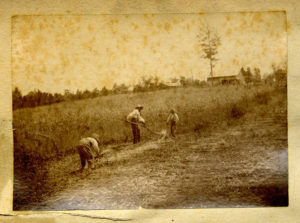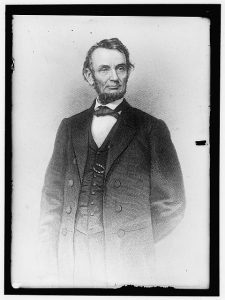As COVID-19 forces schools to close or shift to online teaching, I wanted to take the opportunity to highlight some of those thematic lessons and educational resource that CWGK has made available over the past few years. With generous support from the National Endowment for the Humanities (NEH), CWGK has hired a research associate that developed many of these educational resources over the past two years. They pulled together activities and thematic lessons inspired by the 10,000 documents on the CWGK site to highlight the interpretive possibilities of our digital documentary edition. Given the current situation, these resources offer opportunities for educators to design larger lessons, inform conversations about mid-nineteenth century Kentucky, or fill the seemingly endless void between Netflix binges.

CWGK’s For Teacher’s Page includes both themes and classroom packets. The themes are short surveys of documents on CWGK connected to particular topics like women’s history, crime, agriculture, or religion with some suggestions for activities. The classroom packets survey slavery and murder, mental health, and the 1864 Presidential Election, while providing broader interpretation and activities. Given the transition to remote education across the country, here are two activities that educators could incorporate into their now virtual classrooms, with some suggestions on how they might do so.

CWGK Agriculture Activity: CWGK’s agricultural activity asks participants to envision themselves as farmers in Civil War Era Kentucky. The activity has students assign points (representing the working hours of a day) to different agricultural pursuits on their fictional farms. Over the course of four phases (representing the four years of the Civil War) players draw event cards (developed from real events as discussed in CWGK documents) that represent the hardships brought on by everyday life and war. This includes everything from the requisition of supplies by either army, marauding guerrillas ransacking smokehouses, environmental challenges or disasters, droughts, freedom-seeking enslaved people, or requisitions from the army.
Converting to a digital experience: CWGK designed this activity to function as a board game, with students moving their pieces around, drawing cards, and simulating agriculture and life in wartime Kentucky. Yet, it is possible to use the game remotely.
- Use a video-conferencing platform (such as Zoom, Blackboard, Collaborate, or another video platform) to run the game live with students with your camera facing the game board and have them roll dice (or you roll for them to eliminate the possibility of cheating), and then move their pieces and read the event cards accordingly.
- Use a virtual tabletop platforms (such as Roll20, Fantasy Grounds, Beyond Tabletop, or other systems) to upload a copy of the map, have students join, and operate the game digitally.

https://www.loc.gov/item/2016869254/
The Election of 1864: Our second activity deals with the Presidential Election in 1864 that pitted incumbent Abraham Lincoln against former Union general, George McClellan. Kentuckians divided deeply over the election. Although a largely (but not exclusively) Union state, many slaveholding Kentuckians disdained the erosion of slavery and violation of civil liberties brought on by the Lincoln Administration. Further, questions of loyalty in a slaveholding border state, racial as well as gender influences, and political differences further prevented substantial portions of Kentuckians from voting.
- Converting to a digital experience: To take this digital, I would suggest assigning roles to the students, having them read the documents particular to their role, and discussing (either live or through a chat function) how their character would vote in the 1864 or if they could.
- Alternatively, it would be possible to connect this event to questions of political access in the 2020 election and the centennial of the Nineteenth Amendment. Students could research the evolution of political access or current questions of political participation to inform a larger discussion of voting rights in a longer scope of American history.
These are just suggestions to spark creativity—educators know their students and curriculums far better than I do, so I am sure that there are other opportunities to use these resources to educate students. If you have recommendations, suggestions, or wish to talk further about this, please feel free to contact me at charles.welsko@ky.gov or the CWGK team at civilwargovernorsofkentucky@gmail.com.
Stay safe and healthy, and I hope these resources might make teaching in these trying times just a little bit easier!
